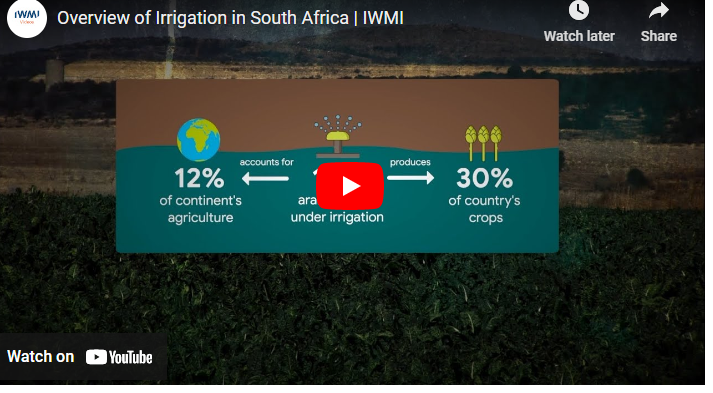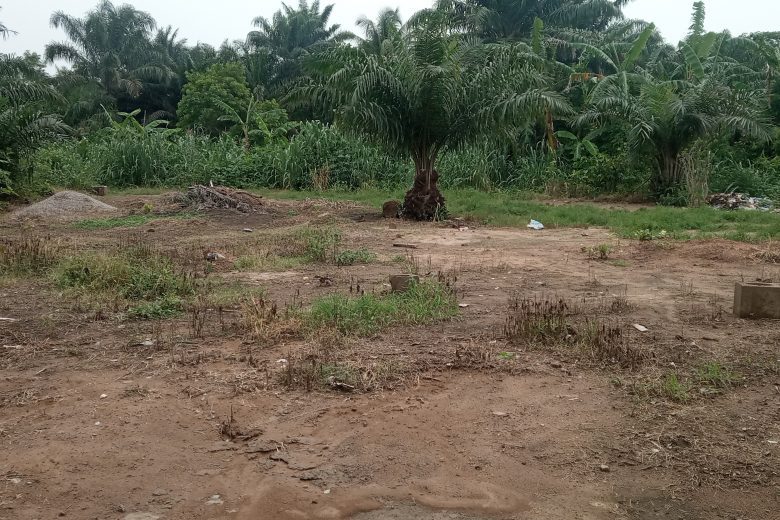Ghana, like many other countries in Sub-Saharan Africa, heavily relies on agriculture as a significant source of income and employment.
However, the country’s agricultural sector faces several challenges, including irregular rainfall patterns, drought, and low productivity due to inadequate irrigation.
To address these challenges, Ghana has invested in several irrigation schemes aimed at increasing agricultural productivity and food security.
These schemes range from small-scale farmer-managed schemes to large-scale government-supported irrigation projects.
List of Irrigation Schemes In Ghana
Designing irrigation schemes is an important step to improve agricultural venture in the country and a sign that the government are interested in the improvement of agriculture in the country.
The list of irrigation schemes in Ghana will be compiled based on Government-led Irrigation Schemes, Farmer-led Irrigation Schemes, and Small-scale Irrigation Schemes.
#1. Government-led Irrigation Schemes
Government-led irrigation schemes refer to irrigation projects that are planned, designed, and implemented by the government to provide water to agricultural lands.
These schemes are typically large-scale projects that require significant investment in infrastructure, such as dams, canals, and irrigation channels, to divert water from rivers or underground sources to farmland.
The aim of these schemes is to increase agricultural productivity, improve food security, and boost rural incomes.
- Kpong Irrigation Project
- Sisili-Kulpawn Irrigation Scheme
- Tono Irrigation Scheme
- Vea Irrigation Scheme
- Kpong Left Bank Irrigation Project
- Fumbisi Valley Irrigation Project
- Kpandai Irrigation Project
- Wenchi Tomato Irrigation Project
- Lower Volta Irrigation Project
- Keta Irrigation Project
- Asutsuare Irrigation Project
- Mprumem Anwiam Irrigation Project
#2. Farmer-led Irrigation Schemes
Farmer-led irrigation schemes are irrigation projects that are planned, designed, and implemented by farmers or farmer organizations.
These schemes are typically smaller in scale than government-led schemes and rely on the participation and collaboration of farmers to manage and maintain the irrigation infrastructure.
Farmer-led irrigation schemes may use simple technologies, such as small-scale pumps and drip irrigation systems, to improve water management and increase agricultural productivity.
- Daffiama Bussie Issa (DBI) Irrigation Project
- Sankana Irrigation Project
- Savelugu-Nanton Smallholder Irrigation Project
- Kumbungu Smallholder Irrigation Project
- Golinga Small-Scale Irrigation Project
- Yeji Irrigation Project
- Afram Plains Irrigation Project
- Bongo Soe Irrigation Project
- Kpatarigu Irrigation Project
- Gbimsi Irrigation Project
- Kagara Irrigation Project
- Fumbisi Irrigation Project
#3. Small-scale Irrigation Schemes
Small-scale irrigation schemes are irrigation projects that are designed for smallholder farmers with limited landholdings and resources.
These schemes may use low-cost technologies, such as micro-irrigation systems and rainwater harvesting, to provide water to small plots of land.
Small-scale irrigation schemes can help to increase crop yields, improve food security, and reduce poverty among smallholder farmers.
- Tsatsadu Small-Scale Irrigation Project
- Dibisi Small-Scale Irrigation Project
- Siana Small-Scale Irrigation Project
- Zuedema Small-Scale Irrigation Project
- Pwalugu Small-Scale Irrigation Project
- Kalbeo Small-Scale Irrigation Project
- Sumbrungu Small-Scale Irrigation Project
- Babator Small-Scale Irrigation Project
- Beposo Small-Scale Irrigation Project
- Kassena Nankana West Small-Scale Irrigation Project
- Kassena Nankana East Small-Scale Irrigation Project
- Tolon Small-Scale Irrigation Project
Importance of Irrigation Schemes in Ghana
Increased Agricultural Productivity
Irrigation schemes have increased agricultural productivity in Ghana by providing water to crops during the dry season. This has resulted in an increase in crop yields and has helped to reduce food insecurity in the country.
Diversification of Crops
Irrigation schemes have allowed farmers in Ghana to diversify their crop production. This has enabled them to grow crops that were previously not viable due to inadequate water supply, such as vegetables, fruits, and other cash crops.
Employment Opportunities
The implementation of irrigation schemes in Ghana has created employment opportunities for both skilled and unskilled workers. This has helped to reduce unemployment rates in rural areas, which are heavily reliant on agriculture.
Increased Income
Irrigation schemes have helped farmers to increase their income by producing more crops and selling them at a higher price. This has helped to reduce poverty levels in rural areas and improve the standard of living for farmers.
Impact of irrigation schemes in Ghana
#1. Improved Food Security
Irrigation schemes have had a significant impact on food security in Ghana. They have increased crop yields and ensured a consistent supply of food throughout the year, reducing the risk of food shortages.
#2. Reduced Migration
Irrigation schemes have helped to reduce migration from rural to urban areas by providing farmers with a reliable source of income. This has helped to improve the quality of life for rural communities, which would otherwise have been left behind.
#3. Increased Investment
The implementation of irrigation schemes in Ghana has attracted investment into the agricultural sector. This has resulted in the development of infrastructure, improved access to markets, and increased technology transfer, all of which have contributed to the growth of the sector.
#4. Sustainable Development
Irrigation schemes have contributed to sustainable development in Ghana by promoting efficient water use, soil conservation, and biodiversity. They have also helped to reduce the negative impact of climate change on the agricultural sector.
Benefits of Irrigation Schemes in Ghana
#1. Increased Agricultural Productivity
One of the primary benefits of irrigation schemes in Ghana is the increase in agricultural productivity. This is achieved by providing farmers with a reliable water source, which allows for year-round crop cultivation.
#2. Diversification of Crops
Irrigation schemes allow farmers to diversify their crops and grow more high-value crops, which can help increase their income and reduce poverty levels.
#3. Improved Food Security
Irrigation schemes ensure a steady supply of food, which reduces the risk of food shortages and improves food security in the country.
#4. Job Creation
Irrigation schemes create jobs for both skilled and unskilled workers, which helps to reduce unemployment rates in rural areas.
#5. Increased Access to Markets
Irrigation schemes improve access to markets by increasing the quantity and quality of produce, which in turn increases the income of farmers.
Challenges of Designing Irrigation Schemes in Ghana
#1. Land Tenure
Land tenure is a significant challenge in designing irrigation schemes in Ghana. Land ownership is often unclear, making it difficult to secure land for irrigation schemes.
#2. Cost
The cost of designing and implementing irrigation schemes in Ghana can be high, making it difficult to secure funding for these projects.
#3. Maintenance
Maintenance is essential for the sustainability of irrigation schemes. However, in Ghana, maintenance can be a significant challenge due to limited resources and capacity.
#4. Water Availability
In some parts of Ghana, water availability can be limited, making it difficult to design and implement irrigation schemes.
#5. Climate Change
Climate change is affecting rainfall patterns in Ghana, making it difficult to design irrigation schemes that can withstand these changes.
Advantages of Irrigation Schemes in Ghana
#1. Increased Agricultural Productivity
Irrigation schemes provide a reliable source of water to crops, leading to an increase in agricultural productivity and crop yields.
#2. Diversification of Crops
Irrigation schemes allow farmers to grow a variety of crops, including those that are not suitable for rain-fed agriculture, leading to a more diverse range of crops and increased income.
#3. Improved Food Security
Irrigation schemes ensure a steady supply of food throughout the year, reducing the risk of food insecurity.
#4. Employment Opportunities
Irrigation schemes create employment opportunities for both skilled and unskilled workers, reducing unemployment rates in rural areas.
#5. Increased Investment
Irrigation schemes can attract investment into the agricultural sector, leading to the development of infrastructure, improved access to markets, and increased technology transfer.
Disadvantages of Irrigation Schemes in Ghana
#1. High Cost
Irrigation schemes can be expensive to design, implement and maintain, making them difficult to finance in some areas.
#2. Land Tenure
Land ownership is often unclear in rural areas of Ghana, leading to challenges in securing land for irrigation schemes.
#3. Environmental Impact
Irrigation schemes can have a negative impact on the environment, such as soil erosion, waterlogging, and increased use of fertilizers and pesticides.
#4. Water Scarcity
In some areas, water scarcity can be a challenge, limiting the feasibility of irrigation schemes.
#5. Conflict
In some cases, irrigation schemes can lead to conflict between neighboring communities over water use and access to resources.
Ghana Irrigation Development Authority
The Ghana Irrigation Development Authority (GIDA) is a government agency responsible for the development and management of irrigation schemes in Ghana.
Its mandate is to provide irrigation services, promote and facilitate the development of irrigated agriculture, and manage water resources for irrigation purposes.
Irrigation Companies In Ghana
There are several irrigation companies operating in Ghana, providing irrigation services, equipment, and technology to farmers. Some of the prominent companies include FDI Group, Agro Irrigation & Pump Services, and Green-Tech Agro Solutions.
Kpong Irrigation Scheme
The Kpong Irrigation Scheme is one of the largest irrigation schemes in Ghana, covering an area of about 12,500 hectares. The scheme is located in the Eastern Region of Ghana and was developed to irrigate rice, maize, and vegetables.
Irrigation Farming In Ghana
Irrigation farming in Ghana involves the use of water from various sources, such as rivers, dams, and wells, to irrigate crops. Irrigation farming allows for year-round crop cultivation and helps farmers to produce higher crop yields.
IDA Ghana
IDA Ghana is a subsidiary of the Irrigation Development Authority of Israel, providing irrigation solutions, equipment, and technology to farmers in Ghana.
The company specializes in drip irrigation, which is a water-efficient method of irrigating crops.
Ghana Irrigation Development Authority New Head Office
The Ghana Irrigation Development Authority recently constructed a new head office in Accra.
The new building is equipped with modern facilities, including conference rooms, training rooms, and a library, to support the Authority’s work in developing and managing irrigation schemes in Ghana.
What Is Irrigation Schemes
Irrigation schemes are a set of activities and infrastructure designed to provide water to crops, enabling year-round crop cultivation.
Irrigation schemes typically involve the construction of dams, canals, and wells to capture and distribute water to farmland.
These schemes can be operated by the government, private companies, or individual farmers. Irrigation schemes are essential for agricultural development, particularly in areas with limited rainfall.
Conclusion
Irrigation schemes are crucial for Ghana’s agricultural sector, which is a vital contributor to the country’s economy. The implementation of various irrigation schemes has increased agricultural productivity and improved food security. However, there is still a need for further investment and development of irrigation schemes to address the challenges faced by farmers and ensure sustainable agricultural growth in the country.



